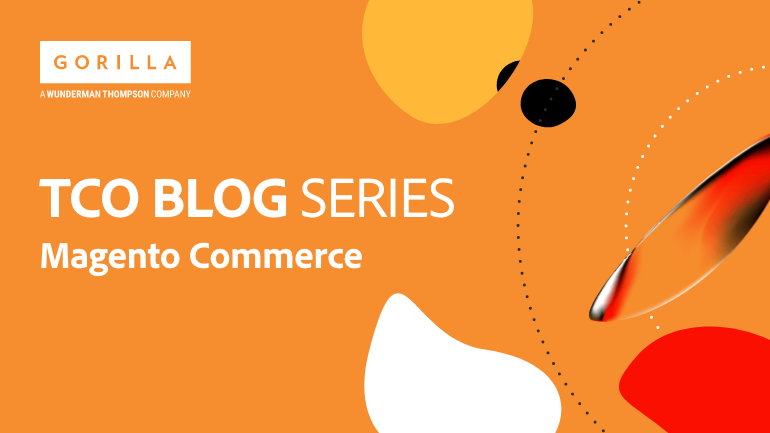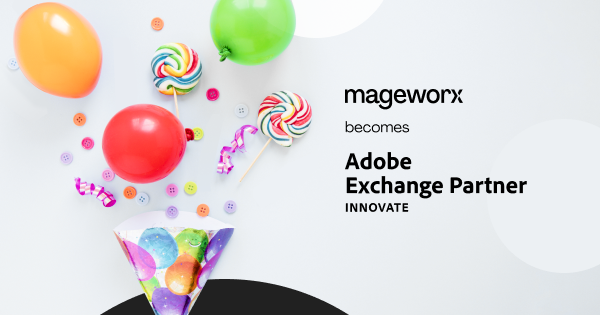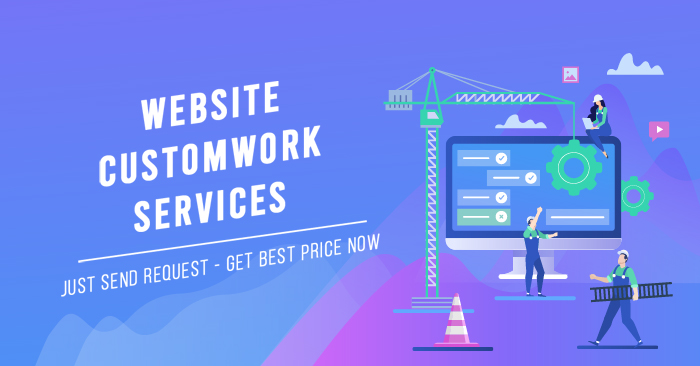
Magento understands this, which is why security patches are released regularly and included in each new software version. The incorporates a number of security patches to harden a merchant’s defenses. One of the more interesting enhancements is two-factor authentication for admin users. Should an admin user’s credentials be compromised, either through phishing or another means, attackers would be unable to remotely log in and take control of a site, eliminating an ever-growing merchant threat. Site security should always be top of mind for merchants, and regular updates provide peace of mind for merchants and their customers.
This holiday season, and beyond, there’s more at stake than ever. Due to changes in shopping behaviors driven by COVID-19, Q2 2020 eCommerce sales were up 44.4% vs. 2019. We can expect that rate of digital commerce growth to continue through the remainder of this year and into 2021. That alone makes for a compelling case for merchants to ensure their sites are running the latest version of Magento Commerce, currently 2.4.0, to take advantage of the latest features and performance improvements.
Related Content:
High Stakes Require High Performance
The case for delaying or deferring platform upgrades often comes down to the immediate cost. However, the real cost of running an outdated version of any mission-critical software, not to mention the accumulated technical debt, can have a lasting material impact on a business.
It may seem counterintuitive, but performing regular platform updates requires less overall effort than infrequent, intermittent updates. That means lower long-term costs, which impacts TCO. For one of our retail clients, for example, moving from ad hoc to quarterly upgrades has saved it almost four weeks of cumulative effort (and associated costs) over the past 12 months.
We all know how important a secure digital experience is to maintaining customer trust. The real cost to merchants are also astronomical, with IBM estimating the average cost of a data breach costing .86 million. To this end, Magento spends an incredible amount of effort to embed abundant and redundant security features into the platform, and to provide additional resources like the Magento Security Scan Tool. As more revenue shifts online, the number of bad actors looking for new ways to exploit system loopholes is growing exponentially.
Simplify Upgrade Path
To get on the path to continual improvement, make platform upgrades a core component of your commerce program. Incorporate regular Magento Commerce platform upgrades into your eCommerce road map. Proactively plan and budget for them as you do other digital initiatives. This includes the timing of upgrades and coordinating all related activities with your solution partner. Then measure overall performance against historical equivalents. You may be pleasantly surprised how continuous innovation can directly lead to stronger growth, lower operating costs, and better TCO.
Are you an Adobe partner and have a topic related to Magento Commerce TCO you would like to contribute? Reach out to https://twitter.com/suryalamech.
Enhance Security
For instance, Magento 2.4.0 includes inventory management support for in-store pickup, which has become vitally important for any brand with retail locations. The added ability to license Adobe stock images directly from the Media Gallery improves efficiency for back-office teams. And the addition of Elasticsearch as the default catalog search engine makes on-site search an increasingly valuable and even more powerful driver of site conversion. With new functionality available in each release, regular upgrades ensure that merchants are delivering best-in-class experiences to their customers.
Each Magento Commerce release includes platform performance improvements, which can have an outsized and cumulative impact. Every second of latency has been shown to reduce conversion rate by 7%, and page speed is a leading SEO ranking factor. So taking advantage of each and every release is in the best interest of every business.
Implement New Features First
There are more eCommerce dollars up for grabs than ever before. Those that deliver the most compelling, frictionless digital experiences will win an outsized share of that business and capture market share. Those running the latest eCommerce platform version will have a leg up in that race. For example, Magento 2.4 includes Quick Order add-to-cart improvements, which accelerate the add-to-cart process by 24% to 30%.
When updates occur regularly, changes are incremental, and the related effort required to implement them is minimized. When platform updates are deferred for an extended period, this can become a more involved, multi-step process. Extensions from the Magento Marketplace may be more broadly affected. Third-party integrations can also be impacted. The time to investigate, plan, and perform the upgrade are all extended, which adds unnecessary costs and effort.
This applies to the Magento Commerce platform that powers their digital businesses. After Magento releases a new “minor” version like 2.4, the previous line (2.3) only gets quality fixes and security fixes, and the full product and engineering focus is on the latest line. Keeping Magento up to date with the latest release enables merchants to take advantage of improved performance and new features, hardening their security defenses, simplifying future upgrade paths, and delivering richer customer experiences. Over the long term, implementing regular updates can lower total cost of ownership (TCO) significantly.
As an Adobe Platinum partner, Gorilla Group emphasizes the importance of continuous innovation and iteration to our retail and manufacturing clients. The broader marketplace and individual customer needs are ever-changing, making it imperative for brands and businesses to improve the experiences they deliver on an ongoing basis.
• Introducing the ‘TCO Blog Series’ for Magento Commerce
• How to Calculate the Total Cost of Ownership for an eCommerce Platform Implementation
Even temporary differentiation is good differentiation. Those that take advantage of regular updates gain a first-mover advantage over their competitors. They are the first to roll out new features and performance improvements, enabling them to deliver better customer experiences. Each Magento update provides a range of new features and enhancements.




![[HOT UPDATE] Autoparts - Shopify Theme Added Homepage 21](https://pacificliners.com/wp-content/uploads/2022/10/hot-update-autoparts-shopify-theme-added-homepage-21-768x886.jpg)
